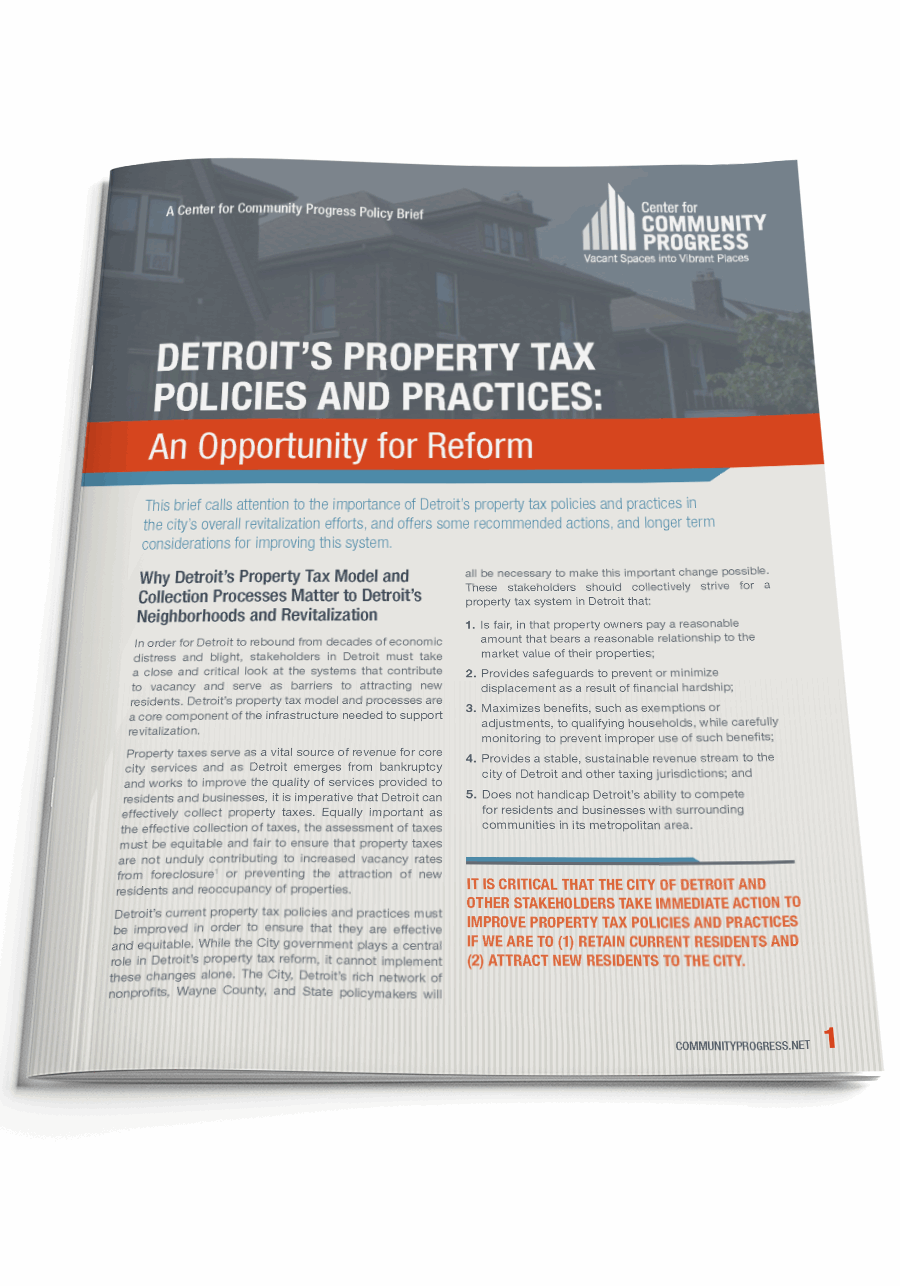Detroit’s Property Tax Policies and Practices
An Opportunity for Reform
Topic(s): Local Analysis, Property Tax System
Published: April 2016
Geography: Michigan
Author(s): Center for Community Progress
This brief calls attention to the importance of Detroit’s property tax policies and practices in the city’s overall revitalization efforts, and offers some recommended actions, and longer term considerations for improving this system.
In order for Detroit to rebound from decades of economic distress and blight, stakeholders in Detroit must take a close and critical look at the systems that contribute to vacancy and serve as barriers to attracting new residents. Detroit’s property tax model and processes are a core component of the infrastructure needed to support revitalization.
Property taxes serve as a vital source of revenue for core city services and as Detroit emerges from bankruptcy and works to improve the quality of services provided to residents and businesses, it is imperative that Detroit can effectively collect property taxes. Equally important as the effective collection of taxes, the assessment of taxes must be equitable and fair to ensure that property taxes are not unduly contributing to increased vacancy rates from foreclosure or preventing the attraction of new residents and reoccupancy of properties.
Detroit’s current property tax policies and practices must be improved in order to ensure that they are effective and equitable. While the City government plays a central role in Detroit’s property tax reform, it cannot implement these changes alone. The City, Detroit’s rich network of nonprofits, Wayne County, and State policymakers will all be necessary to make this important change possible. These stakeholders should collectively strive for a property tax system in Detroit that:
1. Is fair, in that property owners pay a reasonable amount that bears a reasonable relationship to the
market value of their properties;
2. Provides safeguards to prevent or minimize displacement as a result of financial hardship;
3. Maximizes benefits, such as exemptions or adjustments, to qualifying households, while carefully monitoring to prevent improper use of such benefits;
4. Provides a stable, sustainable revenue stream to the city of Detroit and other taxing jurisdictions; and
5. Does not handicap Detroit’s ability to compete for residents and businesses with surrounding communities in its metropolitan area.

Topic(s): Local Analysis, Property Tax System
Published: April 2016
Geography: Michigan
Related Publications
Other Related Content
Subscribe to join 14,000 community development leaders getting the latest resources from top experts on vacant property revitalization.
